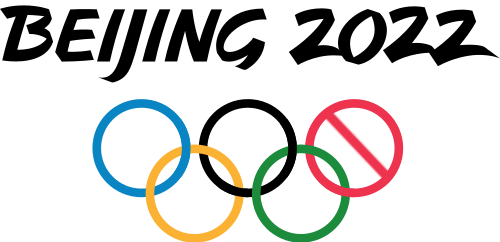Politics, Pandemic Contribute to Low Olympic Viewership

April 8, 2022
The 2022 Beijing Olympics attracted the lowest viewership in Olympics history since NBC began broadcasting the event in 1964. In the games’ two-and-a-half-week period, only 11.4 million primetime viewers tuned into the event across all platforms.
Roughly 10.7 million people watched the games on television while the remaining 700,000 viewed them on other platforms. This is a 42 percent decrease from the 2018 Pyeongchang Olympics, the most recent Winter Olympics to date.
Not only is the 2022 Olympic Games the lowest-rated in NBC’s history, but it also reflects a downward trend in ratings that began during the 2016 Rio de Janerio games. The Tokyo Games, for example, saw a 47 percent decrease in viewership in comparison to the Rio de Janeiro games.
NBC Sports Chairman Pete Bevacqua attributed the stark drop in viewership to the COVID-19 pandemic. The pandemic, compounded by China’s coronavirus protocols, resulted in a decreased number of live spectators. According to The Washington Times, one such protocol required NBC’s announcing teams to remain in the United States for the game’s entirety.
The pandemic also resulted in a general decrease in interest surrounding the Olympics. A survey conducted by Monmouth University states that 36 percent of Americans are “less interested” in the Olympics than usual, and 41 percent “had no interest” in watching the games. 36 percent of respondents were hesitant about continuing with the Olympics at all given the state of the pandemic. There is also a 13-hour time difference between the East Coast of the United States and China, which makes watching live events challenging for those living in far-away time zones.
Several sources suggest the decrease in viewers could be a result of an increase in political discourse surrounding the games. According to ABC News, one likely reason for the drop in viewership can be attributed to public perception of the relations between China and the United States in addition to COVID-19 and a general lack of event promotion.
Human rights issues, public opinion, and economics seem to be general concerns for the U.S public that drive potential viewers away from the Olympics. The New York Post argues that this is because of the “emergence of Black Lives Matter in the sports world”. However, many other sources including Bloomberg contest this, writing that human rights records in China such as concentration camps built to hold Uighur Muslims in the country could be a larger driving factor.
When NBC signed a $7.75 billion deal with the International Olympic Committee, Beijing was not yet designated as the host city. The deal gives NBC streaming rights through 2032.
NBCUniversal Chairman Mark Lazarus noted that the alternative to holding the Olympics in Beijing was hosting them in Almaty, Kazakhstan, which is currently in political turmoil and at the receiving end of allegations of human rights abuses as well. According to Amnesty International, citizens of Kazakhstan are currently protesting soaring fuel prices and political corruption in the country. In January 2022, troops were ordered by President Kassym-Jomart Tokayev to shoot protesters, and any dissent was silenced. Thus, Lazarus argues that boycotting the Olympics for political reasons is ineffective.
Former president of CBS sports Neal Pilson says that there are “A whole range of subliminal factors that are negatives when it comes to an event in China.” He clarifies that “it just adds to the obvious issues, and it leads to the American public being not as interested in the Games this year.”
But NBC remains optimistic about politics staying separate from the sports arena. “When a marketer or fan watches the telecasts, they’re not supporting China or any political agenda that China has,” Lazarus says. “They’re supporting U.S athletes.”
The main reason for NBC’s attitude is that despite low viewership, streaming services such as Peacock have not only increased Olympics viewership from projected numbers, but they have also generated revenue for the network. Since 2018, there has been a 78 percent increase in streaming minutes generated on Peacock, which is NBC’s streaming service. And the Olympic Games in Beijing resulted in Peacock’s highest use since the application’s launch.
NBC Sports Chairman Pete Bevacqua says that despite low viewership, the Olympics were “a home run” for Peacock. “We drastically improved our strategy in the time between Tokyo and Beijing.”
Additionally, NBC’s primetime coverage of the Olympics was the most-watched network television event for the event’s first four nights. At that point, NBC and Peacock were predicted to pass 2.17 streaming minutes by the end of the week, which is the total number of viewers for the Pyeongchang Olympics.
NBC predicted that viewership would decrease following the Tokyo Games, in which ratings fell far below their predicted rate, and acted according to these predictions. NBC lowered its rates for screening advertisements and anticipated that viewership would decrease by nearly 40 percent before the games began. Adam Schwartz, director of sports media at Horizon Media, says that NBC’s Olympic viewership is not behind and is matching past predictions.
NBC hopes for an increase in ratings during the 2024, 2026, and 2028 Olympics, which will take place in Paris, Milan-Cortina, and Los Angeles respectively. Until then, they also have revenue from the Superbowl, during which a single 30-second advertisement sold for $7 million.
